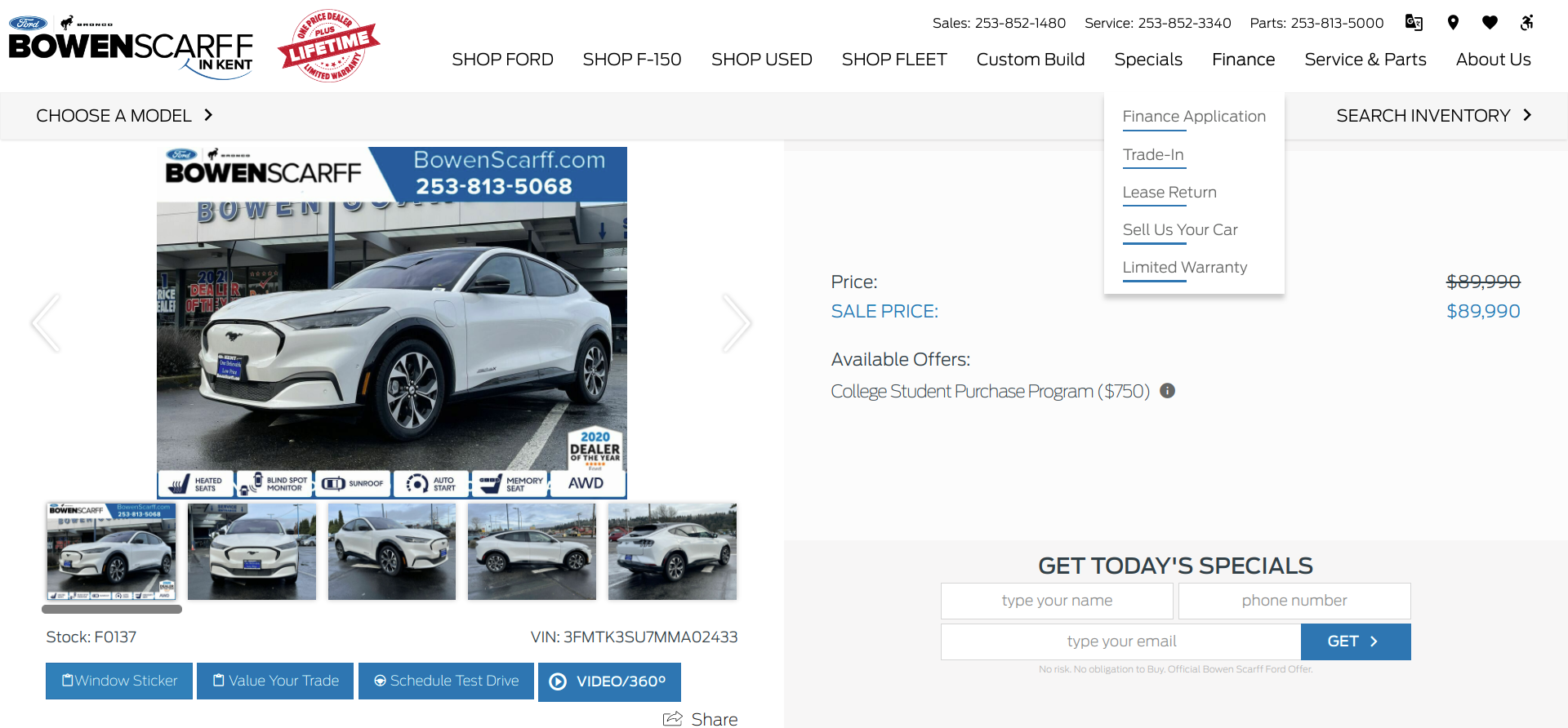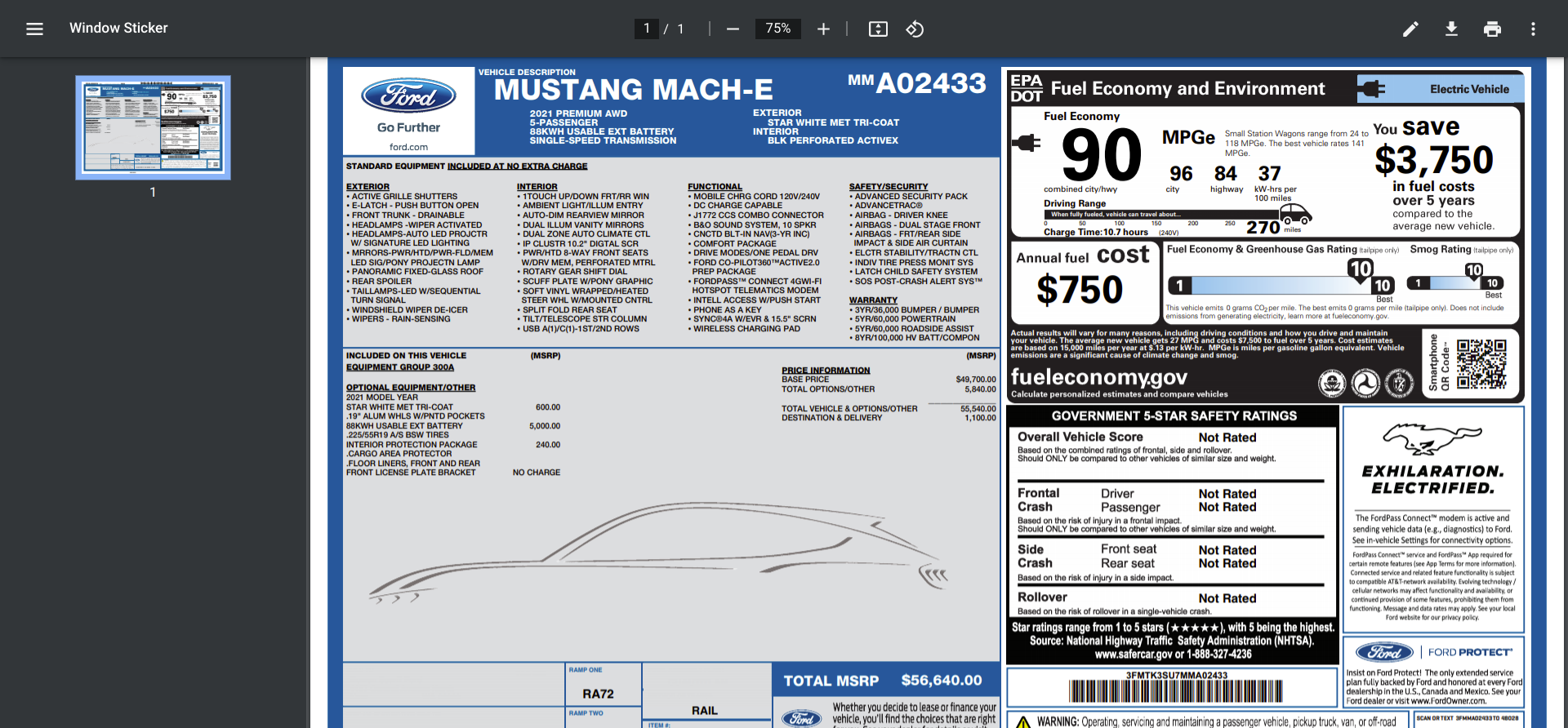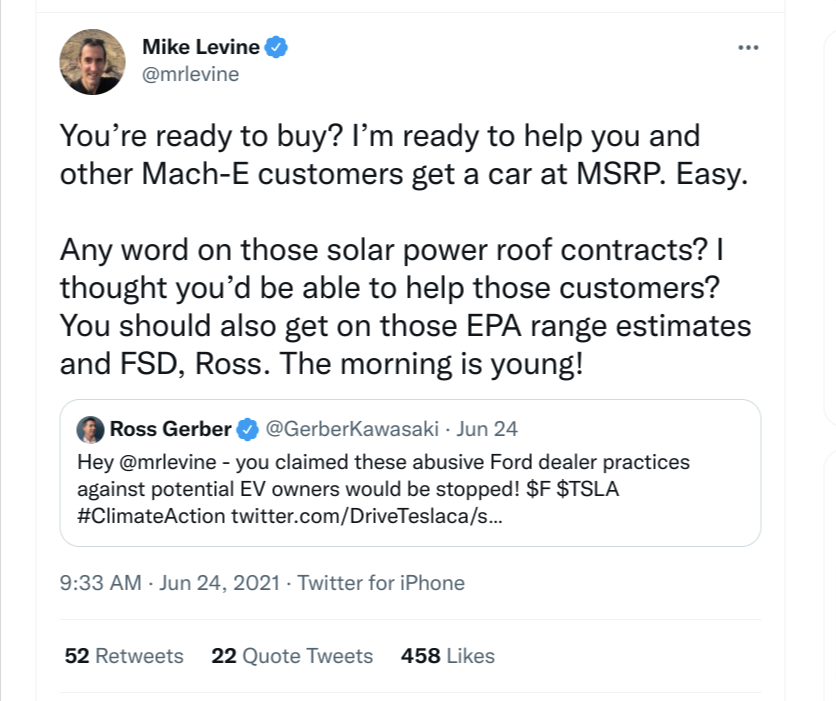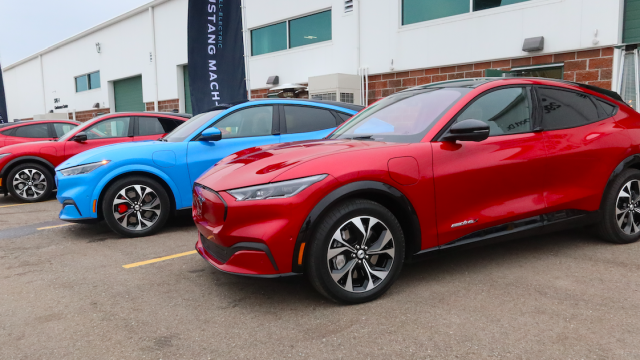Ford Motor Company is serious about offering more electric cars in its lineup. The Ford Mustang Mach-E and the upcoming F-150 Lightning are impressive products. However, the company’s approach to actually selling these products is leaving some customers frustrated and looking elsewhere. While short-term sales seem good right now, the long-term impact may not be.
The first issue is that on these EVs Ford has moved to what it calls “e-invoice” pricing; this means that the invoice price (or dealer cost) and MSRP are identical. Usually dealer invoice pricing is lower, allowing dealers to offer deals below MSRP, which just isn’t as clean or simple to a consumer, who may rather want to just pay what the car costs instead of worrying about getting the best deal. Whether Ford will admit it or not, with this “e-invoice” pricing, it seems to be taking a page from Tesla’s playbook where everyone pays the same price for a car. If you buy a Tesla, the price online is what you pay. No games, no dealer nonsense. Except, despite Ford’s “e-invoice” pricing, dealers can play games and markup cars well over the MSRP.
CarsDirect.com recently reported that Ford is implementing a program where dealers can “snitch” on each other if a dealer advertises the upcoming Lighting below MSRP. Advertising well over sticker price is perfectly ok, though; the “voluntary” program says a dealer can sell a car for whatever they decide, but it is only attempting to discourage advertisements that indicate any level of savings.
I have assisted with several Mach-E deals for various customers in different areas of the country, and though there are some vehicles for sale at MSRP, I’ve seen upwards of $US10,000 ($13,735) over sticker. There are even dealers putting a markup of over $US33,000 ($45,326) on these cars.


(Update, Bowen Scarff Ford reached out to me. To clarify the markup above –
“ But just to clarify, the Mach-E you reference in the article for 33k over MSRP is our dealership demonstrator model and is not for sale but available to test drive prior to people doing a factory order. We honour all of our orders at MSRP at our store. Our manager put a crazy high price on this specific model to stop people from calling on it all day. We had them remove the price so it does not give the wrong impression.”)
There is a lot of demand and not enough supply. When those factors come together, sellers can charge whatever they like. However, earlier in the summer Ford’s Manager of Communications Mike Levine sent out a tweet responding to a customer’s frustration regarding dealer markups.

I was curious as to exactly how Mr. Levine, or Ford corporate for that matter, planned on enforcing any type of “policy” that would disincentivize dealers from selling these cars over MSRP. I reached out to him on a few occasions to get clarity on the matter but did not get a response. I did get a response from Emma Berg who is the director of Ford’s communications for EVs:
“If a customer isn’t happy with their dealer, our team can help them find a different dealer that’s a better match. Dealers are independent franchises and ultimately the final price a customer will pay for any vehicle is agreed between themselves and a dealer.”
I totally understand the franchise agreement and that dealers can sell for whatever they want. While I think it’s great that Mr. Levine was personally active in communicating with dealers on behalf of customers, it’s also not a great look for the brand when your PR representative has to be an intermediary between the customer and the retailer.
There are ways to limit these practices if an automaker was actually serious about it. In 2014 Dodge put a plan in place to limit Hellcat markups and tied future vehicle allocations (i.e. how many cars the manufacturer would send the dealer) to how fast the dealers sold the first round of Hellcats. While Ford cannot dictate what a dealer can sell a car for, it could perhaps tie future allocations for other in-demand cars based on how many vehicles a dealer sells at or below MSRP.
The other issue is that when it comes to leasing Ford’s EVs, lessees cannot take advantage of the tax credits as part of a cost reduction on the car. Ford Financial services will not pass this rebate on. Several brands use the Federal EV tax credit as essentially an upfront discount on leases. For example, if you lease VW’s ID4, which like the Mach-E, has no margin between the invoice and MSRP, you get the $US7,500 ($10,301) rebate which makes the VW lease much more competitive than a similarly priced Mach-E.
Right now demand is far outpacing supply, which creates a market where the sellers have the leverage, but that won’t always be the case. Tesla has been drawing customers not just due to a compelling product, but because people don’t want to buy cars with typical dealer hassles. If Ford, and other mainstream automakers want to compete in that space, offering electrified vehicles alone is not enough. Automakers are going to have to figure out a way to work with their dealerships so that the sales process isn’t sending EV clients to competitors.
